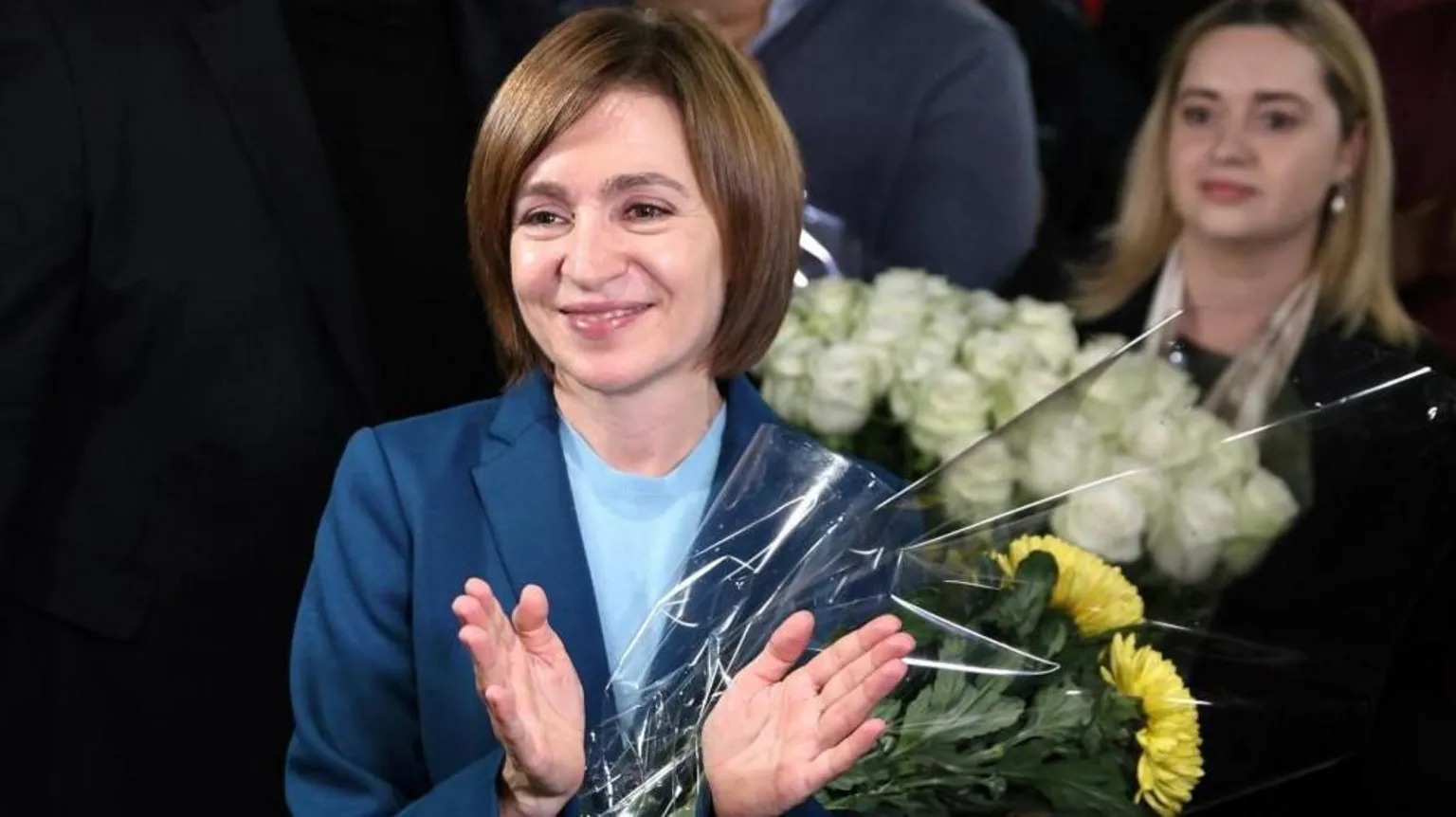
Pro-EU Leader Maia Sandu Wins Moldova Election Despite Alleged Russian Interference
Pro-EU leader Maia Sandu won the Moldova election in a decisive run-off victory over Alexandr Stoianoglo, her pro-Russian opponent. Securing 55% of the vote, Sandu’s re-election is seen as a major step toward European integration for Moldova. In a statement following her victory, Sandu pledged to unite Moldovans and uphold democracy, emphasizing that no one had “lost” in the choice for Moldova’s future.
A Contentious Campaign Marred by Allegations of Interference
The election was marked by accusations of Russian meddling in the Moldova election, with national security advisers alleging “massive interference” aimed at shifting support toward Stoianoglo. Reports surfaced of organized transports from Russia and neighboring countries, bringing voters to polling stations in Moldova. Russia denied involvement, echoing similar allegations in recent elections in Georgia, which were described as a “Russian special operation.”
Explore more on the election’s impact via BBC’s coverage.
Sandu’s Vision for Moldova’s European Future
Sandu’s pro-EU stance has made her a popular figure among Moldovans who favor European integration. Congratulatory messages poured in from European leaders, with European Commission President Ursula von der Leyen commending Sandu’s resilience. Sandu’s foreign policy adviser emphasized that Moldovans—whether at home or abroad—are viewed as a united family, reflecting her inclusive approach.
High Turnout and Divided Support
Turnout was particularly high among Moldova’s expat population, who overwhelmingly supported Sandu. Stoianoglo performed better in rural areas, drawing on his promises of “harmony with both the West and East.” This split reflects the complex political landscape, with pro-EU leader Maia Sandu drawing strong support from younger voters and city residents, while Stoianoglo appealed to rural communities and Russian-speaking regions.
A History of Russian Influence in Moldova
As a former Soviet republic, Moldova has a long-standing relationship with Russia. Allegations surfaced that Ilan Shor, a fugitive oligarch based in Moscow, spent millions attempting to sway the election in favor of Stoianoglo, allegedly offering payments to encourage anti-EU votes. Sandu’s administration has previously warned of Shor’s influence, and the Moldovan election commission has called for public vigilance against reported voting violations.
Security Concerns and International Response
The election faced security issues, including bomb threats at polling stations in Moldova and among Moldovan communities abroad. National security adviser Stanislav Secrieru pointed to reports of organized voter transport from Russia, Belarus, and Azerbaijan, heightening concerns about Russian interference in the Moldova election.
The Path Forward: Moldova’s Role in Eastern Europe
Sandu’s re-election marks a pivotal moment for Moldova as it navigates its role in Eastern Europe. The Moldovan referendum that narrowly supported constitutional changes toward EU membership reflects a broader desire for European integration. Sandu’s pro-EU victory signals a shift in Moldova’s foreign policy and raises the stakes in the Danube and Black Sea regions.
As Moldova moves forward, Sandu’s administration faces the challenge of balancing domestic unity with its commitment to Europe. Sandu’s supporters see her win as a hopeful step toward democratic reform and economic growth, while her opponents remain cautious about Moldova’s alignment with the West.
Maia Sandu’s victory in the Moldova election is a testament to her enduring support among Moldovans who envision a European future. With challenges ahead, Sandu’s leadership will be crucial as Moldova strives to solidify its place in Europe and foster a united, democratic society.





